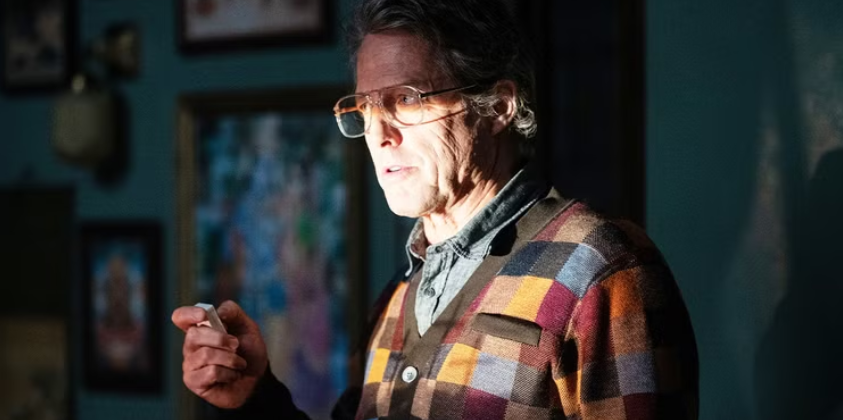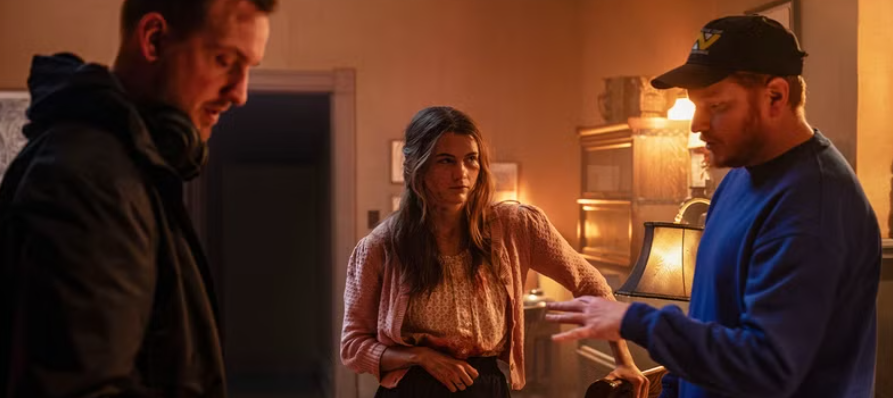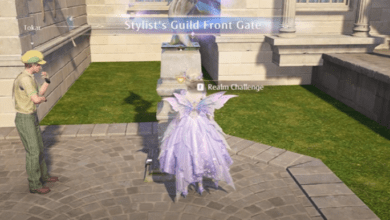Heretic Review: A Deep Dive Into the Psychological Horror of Faith and Doubt
Key Takeaways:
- Heretic stands out in religious horror by focusing on the doubts, hypocrisies, and intellectual challenges inherent in blind faith.
- The film relies less on jump scares and gore, opting instead for philosophical dialogue and psychological tension.
- Hugh Grant’s captivating role as Mr. Reed and the tight, tense cinematography keep audiences questioning their own beliefs.
Religious horror often relies on familiar tropes: demonic possessions, antichrist prophecies, and the evil influence of supernatural entities. But Heretic, a fresh release from Scott Beck and Bryan Woods (the minds behind A Quiet Place and Haunt), dares to chart new territory in the genre. Instead of leaning heavily on horror, Heretic smartly embraces the uncertainty, fear, and conflict that often come with faith itself. Through a thought-provoking narrative, Heretic dives into the true horror of questioning one’s beliefs and trusting in something that might be fundamentally flawed.

Plot Summary: Faith, Fear, and the Quest for Truth
Heretic follows Sister Barnes (Sophie Thatcher) and Sister Paxton (Chloe East), two missionaries of the Church of Jesus Christ of Latter-day Saints, as they attempt to share their beliefs with the skeptical public. After countless rejections, the women are surprised when a man named Mr. Reed (Hugh Grant) expresses genuine interest in their teachings. This unexpected engagement leads them to his secluded home, where a seemingly innocent theological discussion quickly spirals into something far darker.
Upon entering Reed’s home, the sisters notice odd details the promised “Mrs. Reed” is nowhere to be found, and the doors seem locked. Reed knows their religion’s intricacies as well as they do, if not better. As the two women venture further into the home, their faith is challenged on a deeper level, forcing them to confront the very essence of their beliefs. The film brilliantly questions if they will leave the house with their faith intact or shattered.
A New Approach to Religious Horror
Rather than saturate the audience with jump scares, Beck and Woods use Heretic as a platform to explore the complexities of faith and organized religion. Reed’s intellectual and psychological manipulations go beyond mere scare tactics, tapping into a nuanced criticism of strict belief systems. By offering Reed as a character who presents his views with authority and knowledge, the film critiques not only the tenets of religion but also the very nature of unwavering belief.

Heretic isn’t about attacking faith itself; rather, it critiques the “one true religion” mindset that often dismisses other perspectives. Reed, with his seemingly superior grasp of theological nuances, unravels the sisters’ certainty and exposes the contradictions in their doctrine. He embodies the voice of reason that forces them to confront uncomfortable questions about their faith questions they might never have asked otherwise.
Hugh Grant’s Role: A Sinister Intellectual
Hugh Grant’s portrayal of Mr. Reed brings a delightfully sinister charm to the film, adding depth to an already complex story. Known for his recent villainous roles in Paddington 2 and Dungeons & Dragons: Honor Among Thieves, Grant’s Mr. Reed combines intelligence, eccentricity, and a chilling playfulness. His scenes are captivating, as he deconstructs the sisters’ faith with gleeful relish, challenging their beliefs with well-rehearsed monologues and unsettling analogies.
Grant’s performance shines especially in a monologue comparing religion to a game of Monopoly, illustrating how people often blindly follow rules created by others without question. With scenes that feature him singing Radiohead songs and performing a Jar Jar Binks impression, his portrayal of Reed is a bizarre yet compelling mix of menace and dark humour, making him the film’s unforgettable antagonist.
The Cast and Performances: A Balance of Faith and Skepticism
Thatcher and East are well-cast as Sister Barnes and Sister Paxton, bringing a grounded humanity to their characters that balances Grant’s flamboyant role. Sister Barnes, portrayed by Thatcher, is skeptical and self-aware, having come to the church later in life, while Sister Paxton, played by East, is more blindly committed to her faith. Their dynamic serves as a subtle commentary on the different ways people experience faith whether as a cautious commitment or a wholehearted surrender.

While Thatcher holds her own against Grant, it’s East’s character arc that surprises the most. Sister Paxton’s unwavering devotion initially makes her appear naive, yet her character’s resilience adds unexpected depth to the story as she navigates the growing psychological horror. As the film progresses, East’s portrayal reveals a layered transformation, showing how one’s beliefs can be both a source of strength and vulnerability.
The House as a Character: Cinematography and Setting
As Reed’s home gradually transforms from a cozy, welcoming space to an ominous, shadow-filled prison, cinematographer Chung Chung-hoon plays a critical role in setting the tone. Known for his work on Oldboy and The Handmaiden, Chung expertly captures the eerie claustrophobia of the house. His cinematography heightens the tension and confines the audience alongside the characters, leaving no escape from the pressing questions they must confront.

The film’s first half revels in sharp dialogue and tense exchanges, but as it progresses deeper into the house, the atmosphere darkens both literally and figuratively. These shadowy, barely lit rooms offer fewer answers than questions, reflecting the internal conflict of the characters as they grapple with their faith in an increasingly uncertain situation.
A Flawed Yet Provocative Third Act
While Heretic is rich in intellectual and psychological horror, its conclusion struggles to maintain the same momentum. As the story nears its climax, Beck and Woods seem to shift gears, abandoning the unsettling ambiguity for a more concrete resolution that some viewers may find underwhelming. The film dips into “miraculous” elements, and the once-thoughtful exploration of faith gives way to a more predictable horror narrative, slightly undermining the cerebral tone set in the beginning.
Although the final act may not entirely satisfy fans of psychological horror, Heretic avoids a complete unraveling. The questions the film raises about faith, trust, and belief remain relevant, and the horror of grappling with doubt and disillusionment lingers long after the credits roll.
Why Heretic Stands Out in the Horror Genre
Heretic is a rare gem within religious horror, focusing less on fear of the supernatural and more on the existential dread of self-discovery and doubt. This fresh approach makes it a standout film for audiences craving horror with intellectual depth. Rather than relying on predictable scares, Heretic offers a thought-provoking narrative that challenges our most basic assumptions about faith, trust, and belief systems.
By presenting the horror of doubt and uncertainty as the film’s central conflict, Heretic questions the very nature of organized religion without dismissing faith outright. Instead, it invites audiences to explore their beliefs with an open mind and question what they hold to be true. With Hugh Grant’s electrifying performance and the film’s unique storytelling, Heretic is a cerebral thriller that leaves you pondering its themes long after leaving the theater.
Frequently Asked Questions (FAQ)
What makes Heretic different from other religious horror films?
Heretic stands out by focusing on the internal struggles and doubts of faith rather than relying solely on supernatural horror. It explores themes of belief, questioning, and psychological tension, making it more of an intellectual thriller than a traditional horror movie.
Is Heretic anti-religious?
Not necessarily. While Heretic critiques certain aspects of organized religion and blind faith, it doesn’t entirely dismiss religion. Instead, it encourages viewers to think critically about their beliefs and confront potential hypocrisies.
Who gives the standout performance in Heretic?
Hugh Grant delivers a memorable and chilling performance as Mr. Reed, bringing an eerie charisma and intellectual challenge to his role. His dialogue-heavy scenes make him a compelling antagonist, perfectly balancing sinister intent with dark humour.
Is Heretic scary, or is it more of a thriller?
While Heretic has elements of horror, it leans more towards psychological thriller territory. The horror comes more from intellectual and existential dread rather than jump scares or supernatural elements, making it a unique addition to the genre.
What’s the main message of Heretic?
Heretic questions the foundations of faith, the certainty of belief, and the reasons we choose to trust what we’ve been told. It’s a film that prompts viewers to examine their convictions and consider the possibility that their beliefs may not be as unshakable as they once thought.





